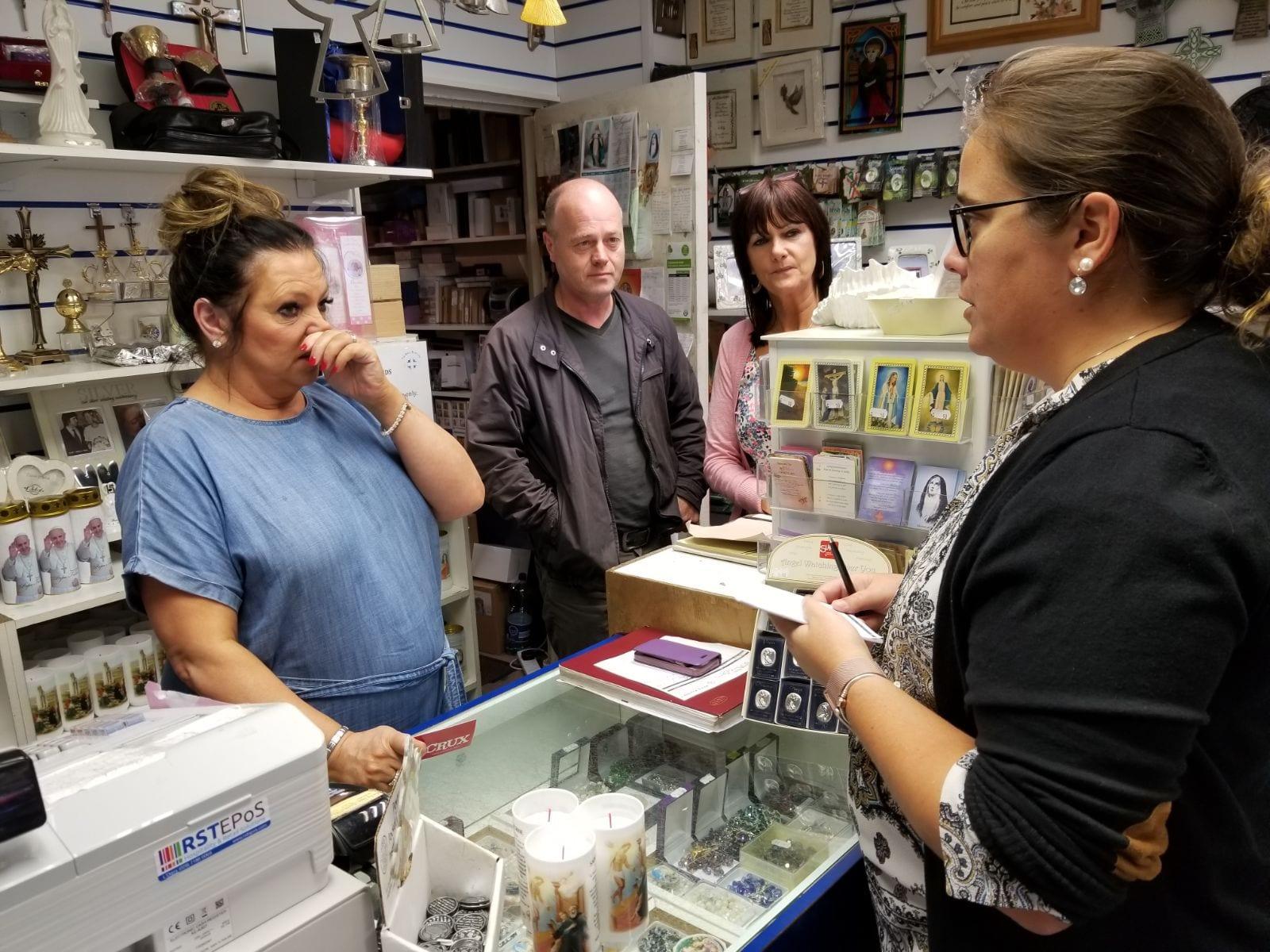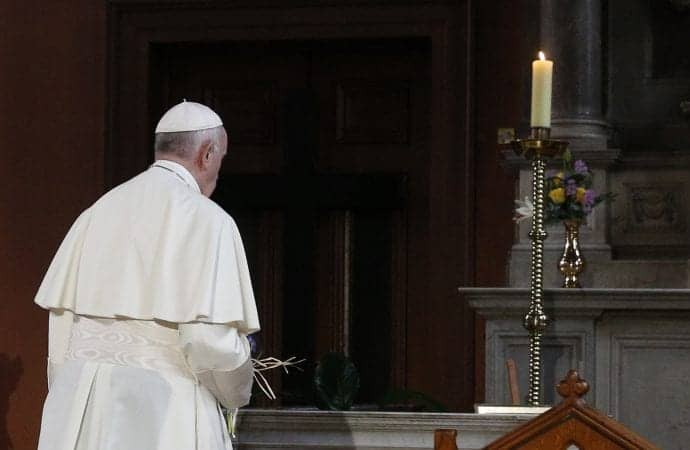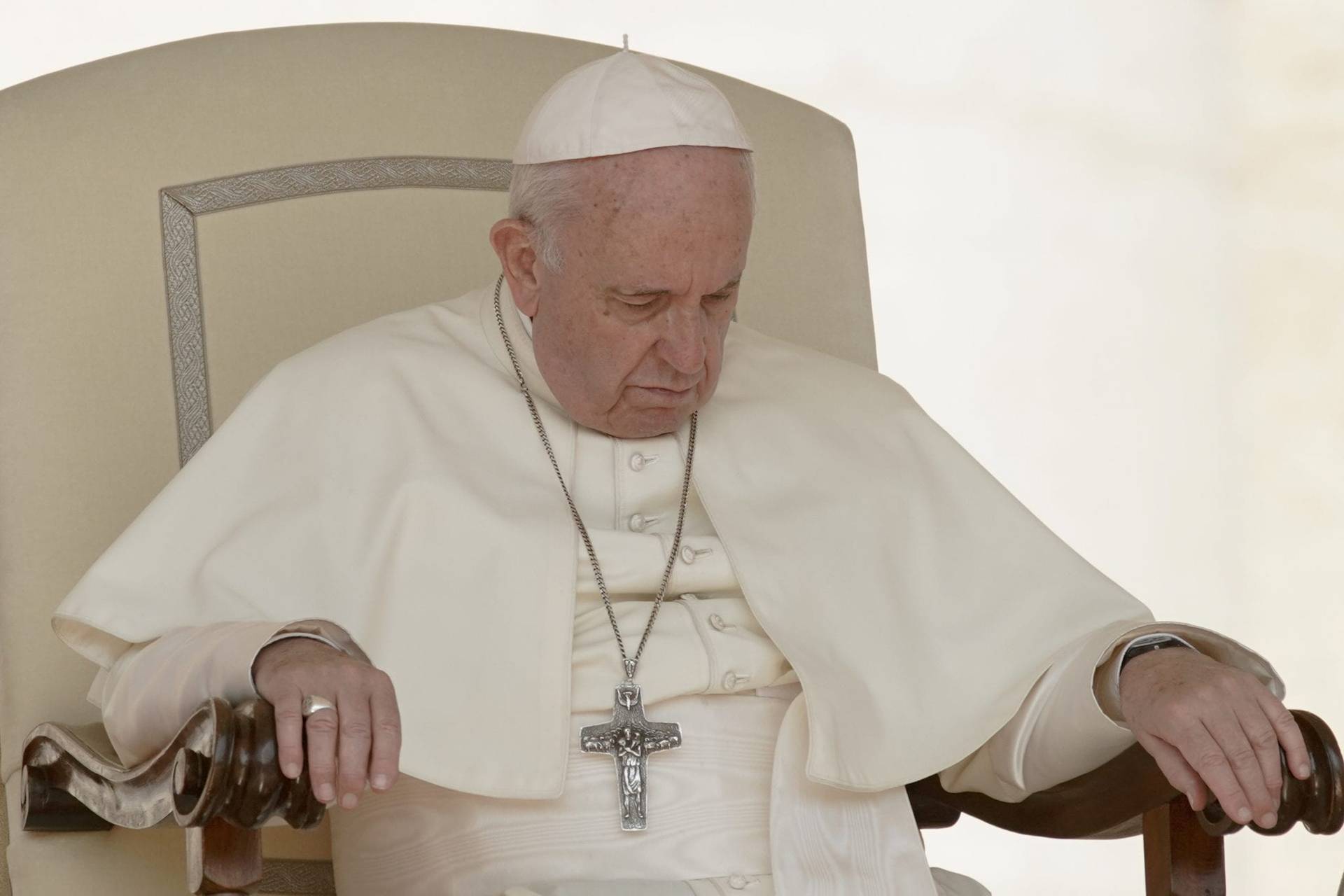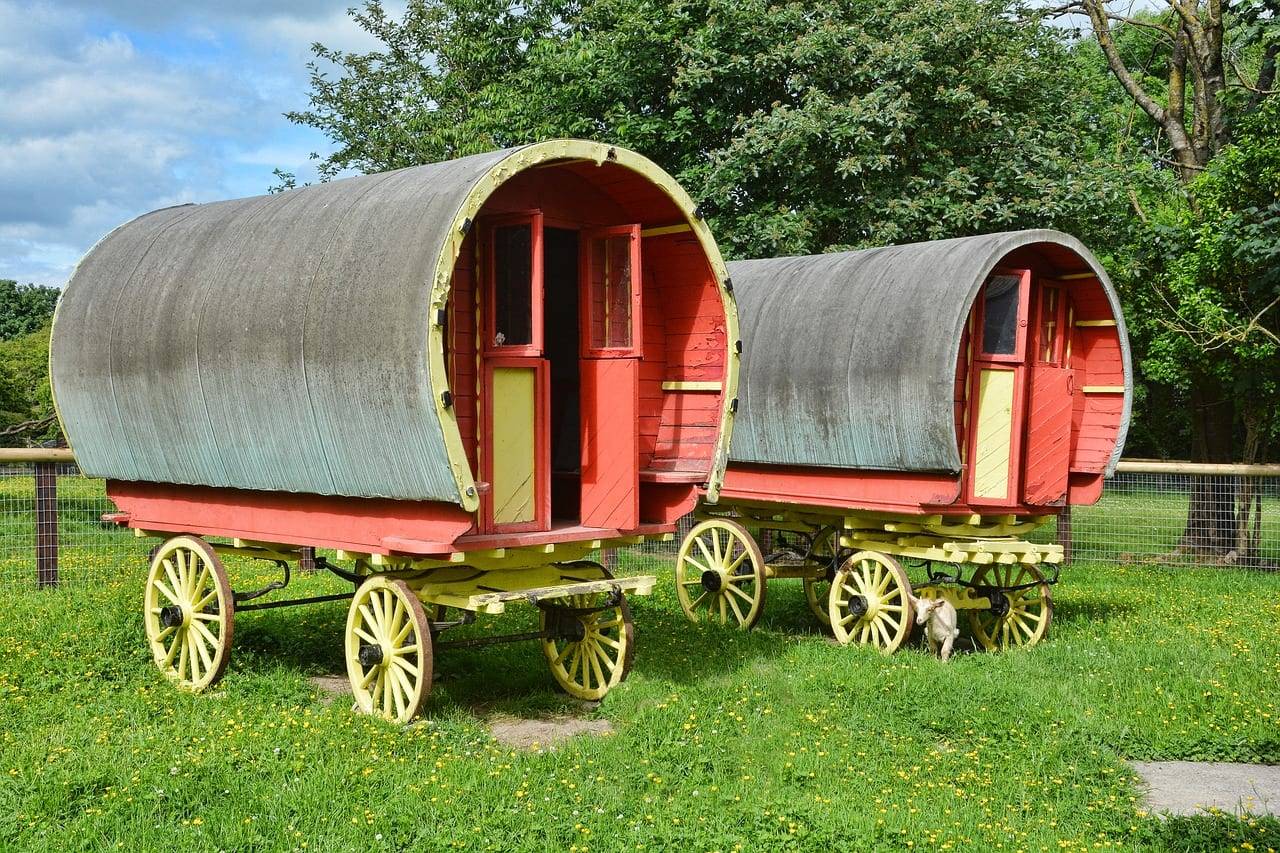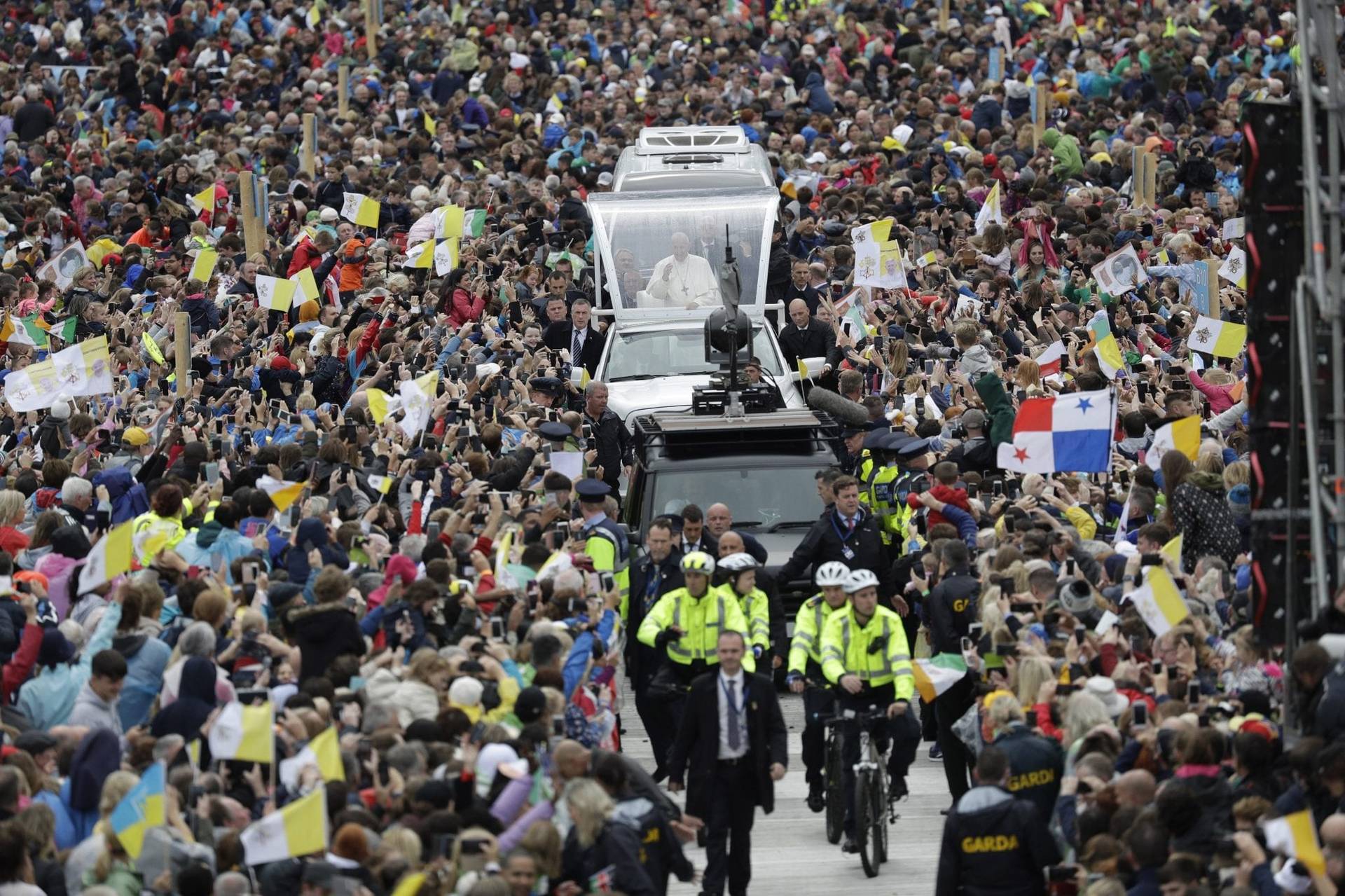BELFAST – My Crux colleagues Inés San Martín, Claire Giangravè and I have been in the capital of Northern Ireland for four days as I write this, and all three of us are frankly dumbfounded how this city could have been gripped by brutal sectarian violence for decades, given that absolutely everyone we’ve met seems to be competing to win a “World’s Nicest Person” award.
To kick things off, the day we arrived a married couple composed of a former Police Commissioner in Belfast and former member of parliament here actually hopped on a train and came to our hotel to facilitate an interview, rather than insisting we go to them. One hour later, one of the country’s most prominent journalists, an old friend of mine name Martin O’Brien, did exactly the same thing.
The next day, after a museum outing (where our guide was bubbly, extremely well-informed and remarkably patient), we hoped to visit Northern Ireland’s last remaining Catholic seminary, which is slated to close. When we got there, the place was closed up tight as a drum and we couldn’t find a soul.
No worries, however … we popped into the neighborhood pub a couple doors down, where the regulars happily spent the next couple of hours telling us stories of the area, what happened there during The Troubles, and pretty much every other subject under the sun.
From a reporting point of view, we naturally took some of it with a grain of salt – a couple of guys’ exploits, for instance, seemed to get more epic with every retelling – but it was definitely the best local color I’ve absorbed in a while.
(We bought a round for the house on the way out, thereby winning friends forever – at least to hear the fellas tell it.)
On Wednesday, a random chain of circumstances washed us up for a couple of hours in a small town about an hour outside of Belfast called Clogher, where we were greeted with fairly stunning kindness by every single person we met.
Oddly enough, the only places we didn’t get a warm reception in Clogher were the two churches on the town’s main drag, one Anglican and the other Catholic, and that was only because in both cases there was absolutely no one there – which, in retrospect, couldn’t help but feel like a metaphor for the rapid secularization that’s as much a fact of life here as anywhere else.
Upon our return to Belfast we dropped in on the famed Clonard Monastery, having no appointment and completely unannounced. We were welcomed with open arms by the Redemptorists there, who dropped everything they were doing to show us around, tell us the story of the place, and insist that we have coffee or tea and cake with them.
Honestly, if we hadn’t been compelled to go file stories for the site, we might still be there. There, too, one caught a glimpse of the challenges facing the Church here, since these three Redemptorists were lovely, kind men who carried the oral tradition of the monastery in their heads – and all were elderly, without an equivalent number of younger priests to replace them.
Thursday brought another round of random acts of kindness.
Things began with a drop-in visit on the only religious goods store in Belfast, the “Holy Shop,” a point which San Martín found intriguing. We walked in and manager Mary Lavery and her team could not have been nicer, dropping their work to talk as long as we liked.
(In truth, once they learned San Martín would be flying into Ireland aboard the papal plane with Francis, she became an instant celebrity. They even insisted on giving her a green Irish rosary to present to the pontiff as their gift.)
Next, we made our way to St. Patrick’s Parish, eager to learn more about how the allure of Ireland’s patron saint plays out in the north. Again, we had no appointment, and again, we were treated like visiting royalty.
The young man who answered the door at the parish office not only knew who I was but was aware of a talk I was scheduled to give that night. He swiftly summoned the church’s longtime sacristan, Ian Whoriskey, who was born across the street in 1945 and has been a parishioner ever since.
After porting in coffee, tea and cookies, Whoriskey asked if we’d like to have the parish cook make us some sandwiches – an offer I gladly would have accepted, actually, had I not been compelled to press on. San Martín, however, stayed, and Whoriskey proceeded to spend the next 45 minutes answering all her questions – according to her, serving up both candor and charm.
Next up, Giangravè and I trundled out to St. John’s Parish in Belfast, where for once we’d actually set up a meeting with Father Martin Magill, the pastor, who works with youth who carry the scars of trauma imposed both by violence and poverty, including alcohol and drug addiction.
Naturally, Magill was waiting outside to greet us, and seemed positively let down that neither one of us wanted coffee. He spent an hour with us, despite the fact that he had just come from saying a funeral Mass for a Mercy sister and he was on his way to celebrate a wedding for a parish couple.
All this, by the way, is in addition to the fact that every cab driver we’ve had, every waiter, every store clerk – not to mention every person we’ve met on the street (and, to tell the truth, more often, in pubs) — has taken an interest and engaged us in ways that go beyond normal.
One of those cabbies actually served up a fairly oracular summation of the Belfast character, at least as we’ve encountered it so far.
“We’re crazy here, but we’re happy crazy,” he said. “With outsiders such as your good selves, we’re always happy you come, and we couldn’t be nicer.”
Then, he delivered the coda: “It’s only with each other that we can’t get along.”
Yet the cabbie hastened to add that he believes things are changing on that score, for the better.
I don’t know if this conflict resolution technique would work anywhere else in the world, but here’s what I’d recommend for Belfast: Instead of “treat others as you wish to be treated,” maybe the mantra here should be, “treat others as if you don’t know them – you don’t know where they grew up, what schools they went to, who their relatives are and what side of the religious divide they stand on.”
If Belfast could pull that off, I’d be willing to bet real money that any smoldering embers of “the Troubles” would be snuffed out forever.
